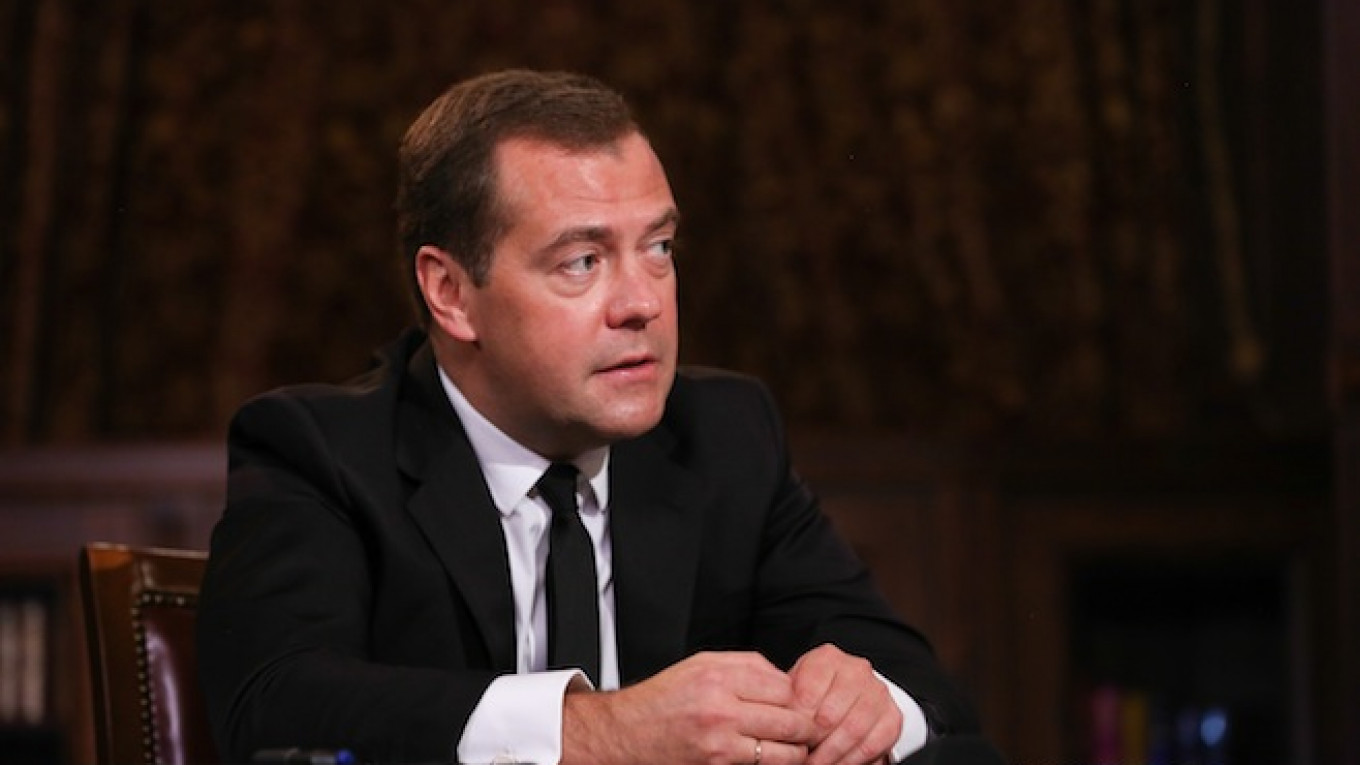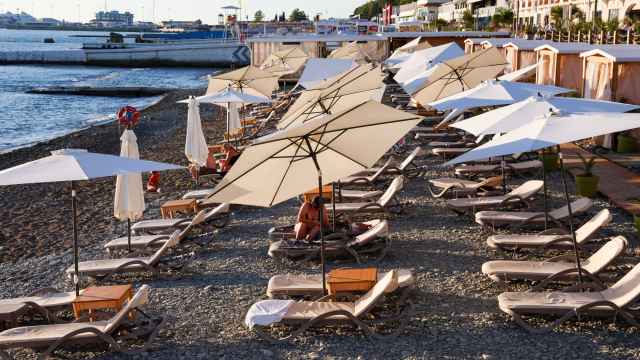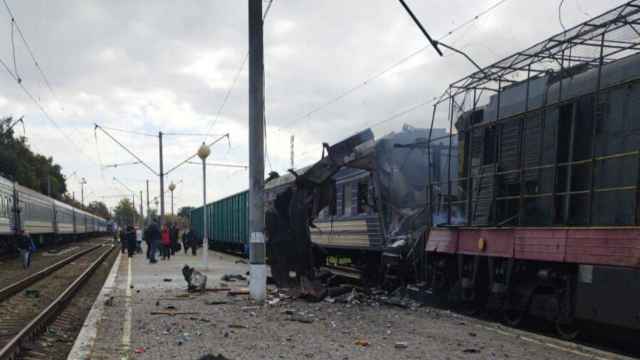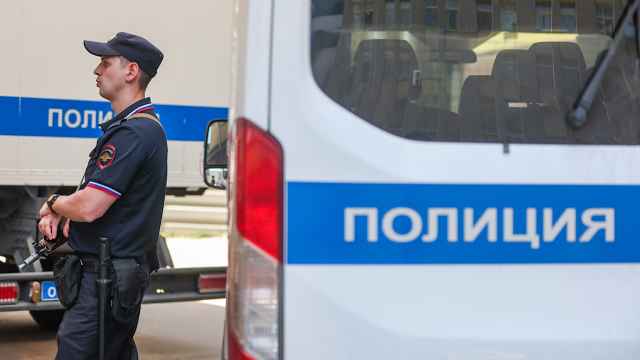The government announced a new policy this week condemning attempts to justify mass Soviet repression, a move that appears to directly contradict official rhetoric and state actions during the last few years.
The move shows a lack of unity in the Kremlin on the ideological front, or even the desire to reverse the current trend of militant patriotism, pundits told The Moscow Times on Wednesday.
The State Policy on Commemorating the Memory of Victims of Political Repression was signed by Prime Minister Dmitry Medvedev on Saturday and published on the government's website Tuesday. It was developed at the order of President Vladimir Putin, the presidential administration and Human Rights Council, who requested its formulation last October.
The political terror orchestrated by Soviet dictator Joseph Stalin and his accomplices in the 1930s-1950s is widely considered to be one of the darkest chapters of Russian history. Millions of people — often the most educated and able — were killed, put into labor camps or deported to distant territories with a harsh climate.
Yet the new policy appears to be at odds with what observers have described as the rehabilitation of Stalin in recent years.
“Russia cannot fully become a state where there is the rule of law and occupy a leading role in the world community without immortalizing the memory of many millions of our people who were the victims of mass repressions,” the policy document says.
The policy says that Russia suffered a series of tragedies following the 1917 October revolution, including the persecution of the clergy, the emigration of the most educated citizens and the brutal collectivization of peasants and ensuing famine, as well as “mass repressions, during which millions of people lost their lives, were imprisoned in the gulag, or were deprived of their property and deported.”
“The denunciation of the ideology of political terror” is listed as one of the principles of the concept.
Bucking the Trend
Arseny Roginsky, head of Memorial, an NGO that advocates the rehabilitation of victims of Soviet repression, said the document represents the first time that the current government has unequivocally condemned the Soviet terror.
“But this policy stands in striking contrast with the overall trend and the idea that we must only be proud of our history and only victories await us, and with the militant patriotism of our times,” Roginsky said in a phone interview.
Memorial's Moscow office and two of its sister organizations in the regions have been declared “foreign agents” by the Russian government in the last two years. In 2012, Putin signed a law that requires all non-governmental organizations that receive funding from abroad and are engaged in loosely defined political activity to register as foreign agents, a term widely associated with spying in Russia.
“The problem is that the state never trusts society and always wants to do everything itself. The truth is that it would be better to leave the task of remembering the purges to civil society,” Roginsky said.
One of the stated goals of the policy is the creation of memorials and museums dedicated to the victims of mass political purges. On Oct. 30 — the official Day of Remembrance of Victims of Political Repression — the city's Gulag History Museum will reopen in a new, bigger location in northern Moscow. On the same day, the winner of a competition for the best design for a monument to victims of political repression to be erected in Moscow will be announced.
According to the policy, archives should be opened, museums created and databases of victims compiled by 2017, in time for the centenary of the 1917 revolution and the 80th anniversary of the peak of the Great Terror.
But in recent years, the government has taken steps in the opposite direction to its new policy. In March, Perm 36 — the only museum in Russia created on the site of a former labor camp — said it was closing due to continued pressure from the local government and a harassment campaign conducted by state-run media.
Local government authorities have since created their own museum on the site, devoted to the state penal system instead of to the victims of Stalinist repression. The new museum's management reportedly includes former prison guards.
Setting the Tone
Putin has expressed an ambiguous attitude toward the role of Stalin in Russian history. Speaking to young Russians at the 2014 Youth Forum on Lake Seliger, Putin praised Stalin for his role in the Soviet victory in World War II.
“We can criticize the commanders and Stalin all we like, but can anyone say with certainty that a different approach would have enabled us to win?” Putin told the audience of young Russians.
“No one denies that Stalin was a tyrant and that we had labor camps and a personality cult, but we need to be able to look at issues from every angle,” he said.
In 2007 Putin visited the Butovo firing range near Moscow, where 20,761 political prisoners killed during the Terror were buried in mass graves.
“We need to do a great deal to ensure that this is never forgotten. To ensure that we always remember this tragedy […] And in honoring the memory of past tragedies, we need to use as a foundation the best things that our people have accomplished,” he told journalists at the time.
A former KGB agent, in 1999 Putin restored a memorial plaque to Yury Andropov on the Federal Security Service building, a successor agency to the KGB. A long-time chairman of the KGB, Andropov is widely associated with crushing the Soviet dissident movement in the '60s and '70s.
Popular Support
Nearly half of all Russians think the sacrifices made under dictator Josef Stalin were justified by the Soviet Union's rapid economic progress during his rule, a poll published at the end of March showed, reflecting a boost in Stalin's popularity in recent years.
Forty-five percent of those questioned by independent pollster the Levada Center said they fully or to some degree thought that the sacrifices made by the Soviet people under Stalin's rule were justified in light of the country's rapid development. Two years ago, that figure stood at only 25 percent, according to the report.
The Levada Center poll was conducted between March 20 and 23 among 1,600 respondents in 46 Russian regions. The margin of error did not exceed 3.4 percent.
The newly adopted government policy appears to criticize such approaches, saying: “Continued attempts to vindicate repression by referring to the particular features of the time, or their outright denial are unacceptable.”
In July, the Communist Party collected nearly 160,000 signatures in support of the restoration of a monument to Felix Dzerzhinsky, the founder of the dreaded Soviet secret police. The party later put on hold its bid to restore the monument.
Words Vs. Actions
Igor Bunin, head of the Center for Political Technologies, a Moscow-based think tank, said there are various groups in the government that have differing views on patriotism and Russian history.
“I think some people in the government have begun to doubt that the current policy of militant patriotism can lead anywhere,” Bunin said in a phone interview Wednesday.
“At the same time, having a policy is very different from taking action. For instance, the closure of the Perm museum is an action,” he said.
The policy is a reaction to the growing trend of the re-glorification of Stalin, said Ivan Kurilla, a professor at the European University in St. Petersburg.
“It is an important step in the right direction,” Kurilla told The Moscow Times in a phone interview.
Contact the author at [email protected]
A Message from The Moscow Times:
Dear readers,
We are facing unprecedented challenges. Russia's Prosecutor General's Office has designated The Moscow Times as an "undesirable" organization, criminalizing our work and putting our staff at risk of prosecution. This follows our earlier unjust labeling as a "foreign agent."
These actions are direct attempts to silence independent journalism in Russia. The authorities claim our work "discredits the decisions of the Russian leadership." We see things differently: we strive to provide accurate, unbiased reporting on Russia.
We, the journalists of The Moscow Times, refuse to be silenced. But to continue our work, we need your help.
Your support, no matter how small, makes a world of difference. If you can, please support us monthly starting from just $2. It's quick to set up, and every contribution makes a significant impact.
By supporting The Moscow Times, you're defending open, independent journalism in the face of repression. Thank you for standing with us.
Remind me later.






